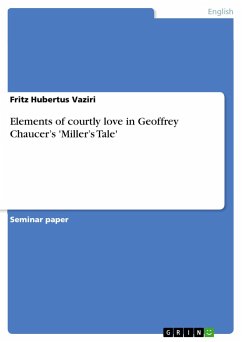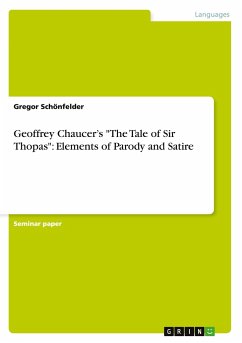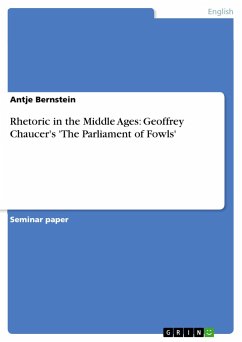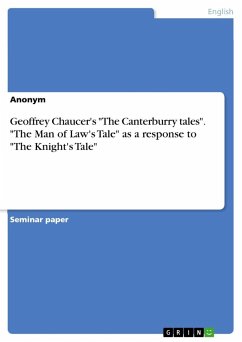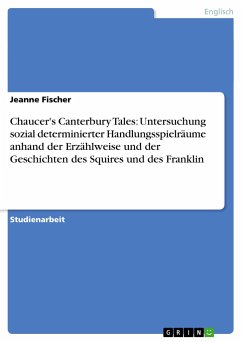Essay from the year 2005 in the subject English Language and Literature Studies - Literature, grade: 2,3, University of Bayreuth, course: British Survey, language: English, abstract: The Canterbury Tales take place in England of the 14th century. It is spring time and a group of 30 people from all social classes is gathering together in the Tabard Inn in Southwark near London to plan their pilgrimage to Becket's tomb at Canterbury. To kill time during their journey a story-telling contest is created. Each pilgrim has to tell a story and the winner of the best story will get a free supper. The Canterbury Tales are structured as a frame narrative. The General Prologue mainly builds the frame where all the characters are introduced and the story-telling competition was invented. Its structure is very simple. After an introduction in lines 1-34, the narrator begins the series of portraits (lines 35-719). Afterwards the Host suggests the tale-telling contest which is then accepted by the pilgrims (lines 720-821). In the following the pilgrims gather and decide that the Knight should tell the first story.The frame in which the story is embedded has a long tradition. Boccaccio's "Decamerone" was for example written in this style and Chaucer read it when visiting Italy.Originally Chaucer wanted each of the pilgrims to tell two stories on the way to Canterbury and two on the way back. This would have led to 120 single stories, but he never finished this enormous work. In fact there are only 23 tales, some of which are even incomplete.



